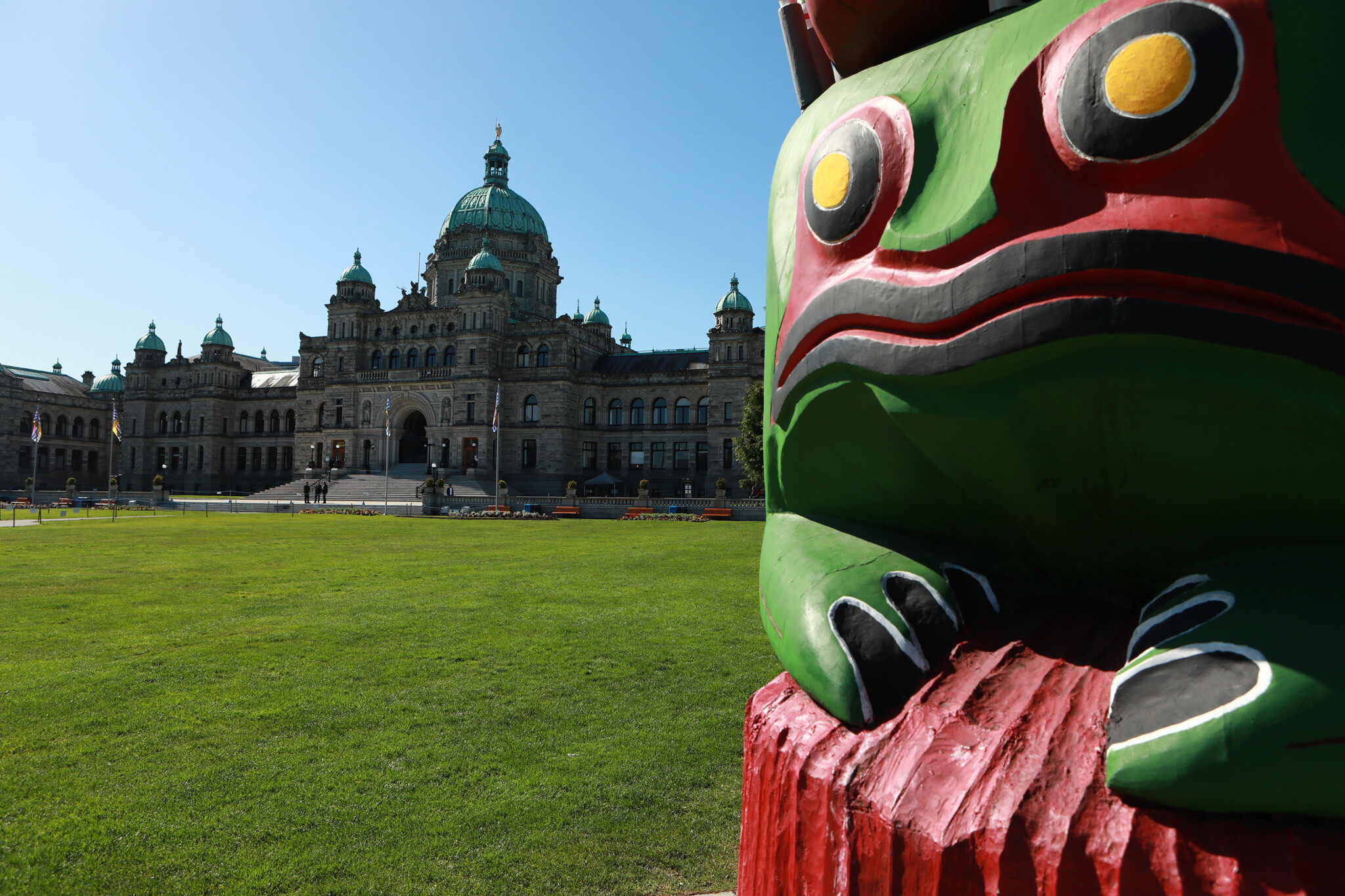‘The case is so consequential’: Could a B.C. First Nations land claim upend Canadian property rights?
The Indigenous Cowichan tribes have won a major land claim case in B.C.’s Supreme Court that set a record for the longest trial, spanning 523 days in the last five years, and may have wider implications for property rights in the province of B.C. and Canada. University of Saskatchewan Professor of Law Dwight Newman breaks down the case and its wider implications for Canada.
You can listen to this episode on Amazon, Apple, and Spotify.
Program Transcript
This is an automated transcript. Please check against delivery.
SEAN SPEER: what does this new major land claim ruling in British Columbia mean for the process of reconciling indigenous land claims and private property rights? I’m grateful to have Dwight Newman a constitutional law professor at the University of Saskatchewan, and the scholar behind the new legal substack law for breakfast to join me to break down these questions. Thanks so much for joining me. Dwight.
DWIGHT NEWMAN: oh, I’m happy to happy to talk with you,
SEAN SPEER: if you’ll permit me. Let’s just start with some of the basics here. I understand that this case was the longest trial in Canadian history, what did it involve? What was it about?
DWIGHT NEWMAN: Well, the case was about mainly an aboriginal title claim by the Cowichan tribes to an area that’s now part of the city of Richmond on the other side of the waters. I mean, they’re a indigenous community, mainly on Vancouver Island, but they said that they had used in the past some lands on an island that that’s over on the other side. There was also a claim to an Aboriginal fishing right in the Fraser River that happened to draw some tensions with the Musqueam. So there’s a lot of things going on in the case, but the big headlines are really about this aboriginal title claim in an area in the city of Richmond that involves land held by the city, where there’s specifically a declaration, and implicitly there could be effects for private property owners there as well. Although. At the request of the indigenous community, the court didn’t specifically make a declaration on those
SEAN SPEER: so as you say, this land is really what was in question in the case. And ultimately, the judge ruled that the First Nation indeed has title to roughly 800 acres of land in the Vancouver area that, as I understand it, is currently mostly involved in active industrial operations on the Fraser River. Leaving aside for a minute, Dwight that the government has announced that it will appeal the decision. Help our listeners and viewers understand in conceptual and practical terms what it means for this land to become part of Cowichan First Nations title.
DWIGHT NEWMAN: So aboriginal title is, according to the case law, full ownership of land. Now how that’s understood that there’s full ownership under aboriginal title at the same time that there’s ownership under fee simple, which is the way that most people own private property, is a really tricky thing to sort through, and we don’t actually know what exactly that would look like. The court sort of deferred some of that, but there would be a consequence that the Cowichan tribes, the group that brought the claim, would be the owners of this land.
Now it might mean that they exercise jurisdiction and charge rental fees or taxes or something we just don’t know honestly. And the judge is actually explicit in saying that some of that, when you get to private property owners, apart from the the city, that that can that that’s something to be sorted out still in future proceedings, in part because those people weren’t part of the case. They weren’t even notified of the case. In fact, some may have become aware of it, but there were wrestlings around whether they should receive any formal notification, and ultimately, decisions that there were for no formal notifications out to them. The City of Richmond lens in question would now be under the ownership of the of the couch and tribes those that were directly affected by this, which is not all city of Richmond lands, but specific ones.
SEAN SPEER: the decision has been characterised as important and precedent setting. Why help us understand its significance?
DWIGHT NEWMAN: Well, it’s really the first case where a judge has said something this directly in terms of the implications of our aboriginal title for private property or for fee simple lands. That’s the big precedent. Potentially from it, obviously, it’s going to be appealed and might end up in the Supreme Court of Canada before all is said and done, it would be the decisions from those courts on that issue that are really significant precedents in terms of the consequences of aboriginal title in Canada. There are other pieces of interest to legal people, issues around aboriginal title, the submerged lands, that are interesting. Issues around how the evidentiary standards are being applied under the test, but there there weren’t big changes on the aboriginal title test. There was an application, but with this unique issue that we’re getting closer and closer to consequences for private property.
SEAN SPEER: you mentioned that the government has announced it intends to appeal the decision. What happens? What happens next? How do you envision it playing out?
DWIGHT NEWMAN: Well, I’d be surprised if the British Columbia Court of Appeal didn’t agree to hear the case. It is so consequential. So the government will presumably be appealing some of the others. That’s the BC government, the other parties to the case, I would expect would also continue to be involved. So government of Canada, the Musqueam, the suas and the city of Richmond. We might also see intervenors apply to be involved in the case at that stage, particularly as the court is wrestling with these legal issues around, how do we see the interaction between aboriginal title and private property?
And we might get a fuller, an even fuller engagement with that at the appellate level, the trial level, a lot of the like, when you talk about those 500 trial days, that’s about hearing evidence from different experts, evidence from oral histories, looking at evidence from written materials. More so than spending all of that time on the law, the appellate court will engage most directly with the legal questions. The trial judge does that, but the appellate court specialises in that.
SEAN SPEER: Dwight, I suspect a lot of our listeners and viewers may recoil instinctively in response to the decision, the idea that the land underneath these businesses could be forced to return to the First Nations by the fee simple holder probably offends people’s understanding of fairness and property but let’s steel man the other side for a moment, is returning the title back to the First Nations, the real expression of property rights.
DWIGHT NEWMAN: Well, that would be the argument by those putting forward the indigenous property rights, they’re saying that this land was taken from them and they’re trying to recover it. And so there are some complicated arguments to be had about what’s the real defence of property rights. Now you still have the question if it was validly indigenous property, but it’s been in the hands of someone else for a long time, a bona fide purchaser for value who is unaware of something. You have legal doctrines that wrestle with those complicated moral questions, I guess. But yeah, there is an argument there about who really is the owner of this property. That’s what the case is about.
SEAN SPEER: Now, as we wrap up, I want to look more broadly at its significance. Some of our listeners and viewers will instinctively know that there are different ways in which indigenous communities negotiated or enter into arrangements with the Crown across the country. Does this have the potential to influence outcomes elsewhere in Canada, or is it more limited to the unique particularities of BC? How should we think about its potential to reshape the relationship between the Crown and indigenous communities and indeed the notion of property rights.
DWIGHT NEWMAN: So even in British Columbia, there might be ways that some could read the judgement more narrowly, but I think it’s broader. So I think where there’s aboriginal title lens, it does it does arise, but there aren’t aboriginal title claims in areas where there have been treaties reached, either historic treaties, deeper in the past, or modern treaties that have resolved issues more recently. And there are large parts of the country that are covered by such treaties where I don’t think this plays out the same way. That said. There are other places where there are aboriginal title claims being pursued, the entirety of the province of New Brunswick, there’s arguments that the treaties there didn’t cover land surrender, and that’s that’s subject to debate, but there are such arguments, and there are the cases proceeding, and there are other spots here and there where there are aboriginal title claims for various reasons.
SEAN SPEER: Just a final question, looking ahead. How do you think this will influence other indigenous communities in their negotiations with the Crown on outstanding land claims? Is it likely to produce more litigation? And if so, how should we think about that? What does it mean for the ongoing process of reconciliation?
DWIGHT NEWMAN: It’s challenging to see right now exactly how it plays out. Does it lead to more immediate litigation? I’m not so sure of that. I mean, one of the things that highlights is just how expensive this litigation is, and 500 trial days is actually 10s and 10s of millions of dollars of legal costs there. Not every community is going to be in a position to pursue that or wish to pursue it in that same way, but it may drive expectations farther apart in terms of what a community thinks it could get if it were litigated, while the crown may not take that view if they think this could still go the other. Way on appeal, so I think it probably slows some things down in the shorter term, and we’ll have to see where things go in the longer term.
SEAN SPEER: Thank you for helping us to understand what appears to be a significant yet obviously highly complex decision. Dwight Newman, a law professor at University of Saskatchewan, and the scholar behind the legal sub stack law for breakfast, which I’d encourage our listeners and viewers to check out. Thank you so much for joining me for this episode of hub hits.
DWIGHT NEWMAN: Well, thank you for having me.



